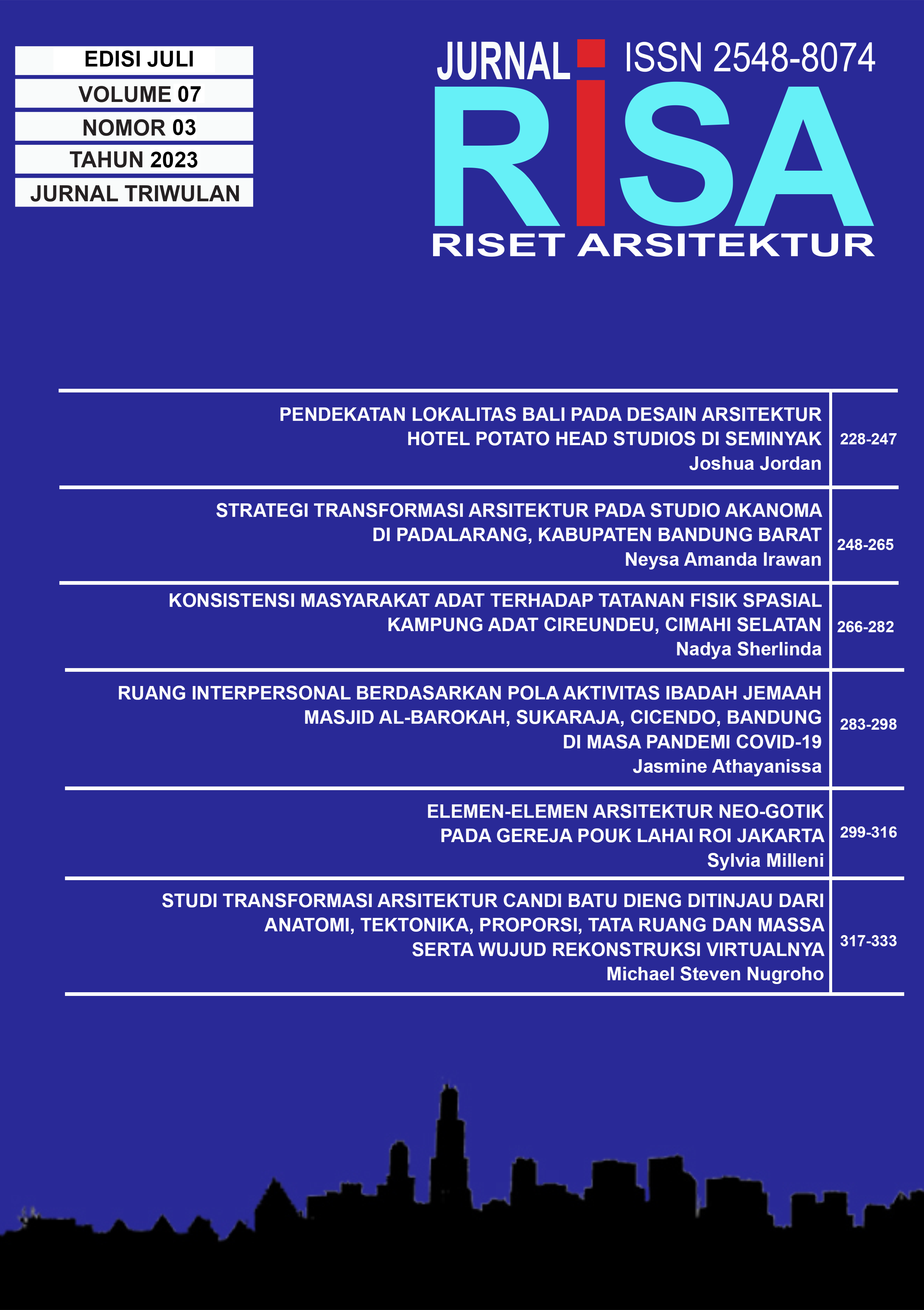INTERPERSONAL SPACE BASED ON PATTERNS OF WORSHIP ACTIVITIES IN AL-BAROKAH MOSQUE, SUKARAJA, CICENDO, BANDUNG IN THE COVID-19 PANDEMIC
DOI:
https://doi.org/10.26593/risa.v7i03.7000.283-298Abstract
Abstract - The implementation of joint worship is highly prioritized in Islam. Such as straightening and tightening the rows during congregational prayers by bringing the shoulders and ankles closer between adjacent congregations, to maintaining the ukhuwwah Islamic relationship recommended by the Prophet Muhammad by shaking hands when meeting with other Muslims. Entering its 3rd year, Indonesia must fight against the spread of a new variant during the Covid-19 pandemic, namely the BA.2 Subvariant or the Omicron Variant which requires mosques, as facilities for collective worship, to adjust managers and congregations in carrying out various activities. Likewise, the Al-Barokah Mosque which functions as a residential mosque in the Sukaraja area, Bandung City. Prisoners between individuals and personal hygiene are crucial things to be monitored together.
Residents of the Muslim community who are accustomed to worshiping together at the mosque daily, carrying out activities to build brotherhood together, must change their traditions to avoid a virus that has not gone away for a long time. The solemnity of congregational worship that is felt through togetherness in activities in the mosque, must be forced to change in maintaining personal health. There is a drastic change that is increasingly turning into a polemic not only for the manager, but also for all the congregation who carry it out.
This study uses a qualitative-descriptive method by borrowing the inductive method in the process of justification and confirmation of the observation results. Observations were made on managers, implementers, and congregation as performers of worship activities in the mosque area, to find out the real results of activity patterns based on various subject positions. Direct communication and filling out questionnaires by activity actors are also used to obtain a more personal quality of information, related to observations of the user's interpersonal space.
The conclusion is generated by combining the observation findings on several different activities which are analyzed through the theory of interpersonal space based on the procedures for worship in Islam and justified through the results of questionnaires and direct interviews with the managers and congregants of Al-Barokah Mosque, Sukaraja, Cicendo, Bandung City, to see personal space. and the social space that followed. The research was aimed at knowing the changing conditions of the congregation's interpersonal space during the Covid-19 pandemic, within the scope of joint and munfarid religious activities.
Keywords: activity, interpersonal, mosque, omicron, pandemic, space
Additional Files
Published
Issue
Section
License
Copyright (c) 2023 Jasmine Athayanissa

This work is licensed under a Creative Commons Attribution-NonCommercial-ShareAlike 4.0 International License.












